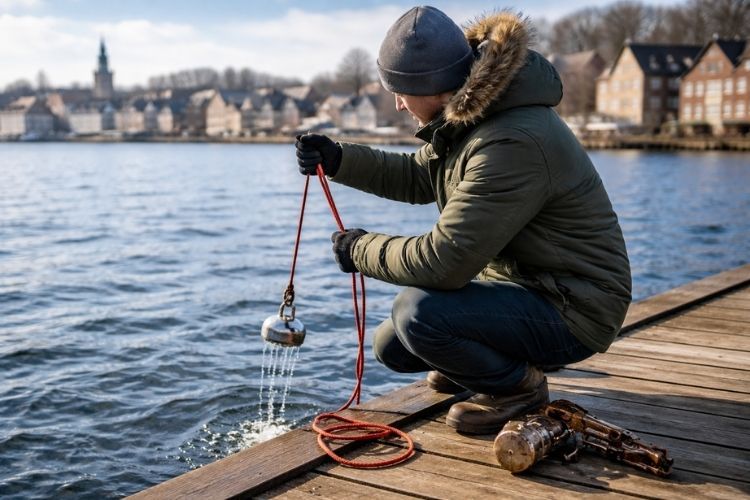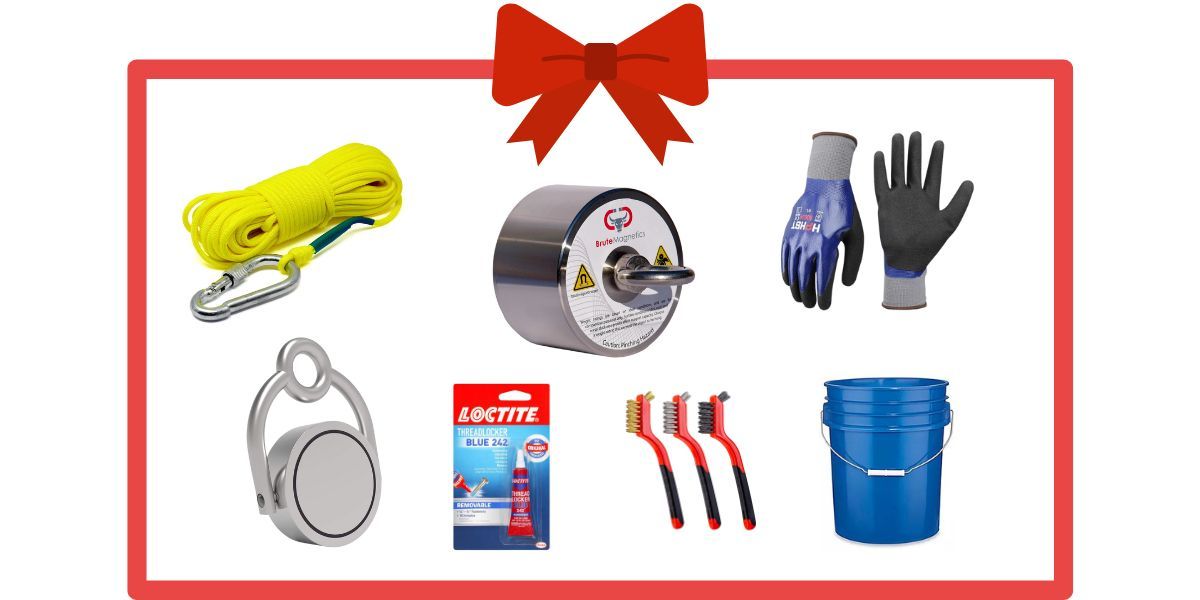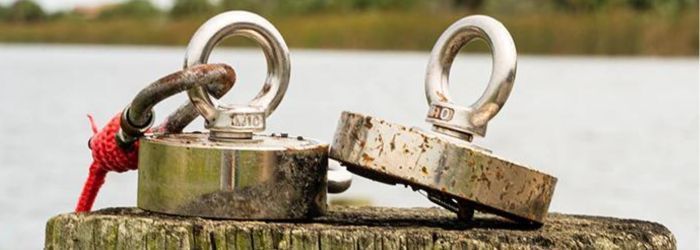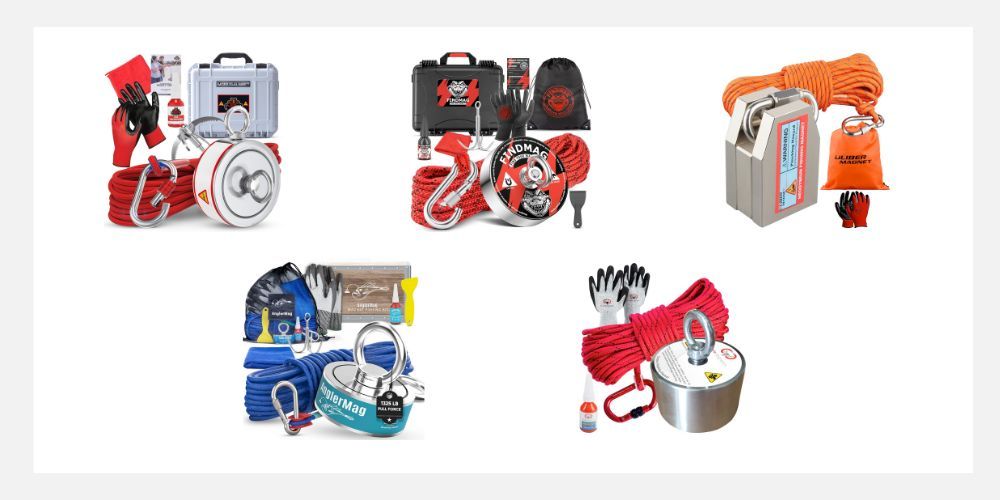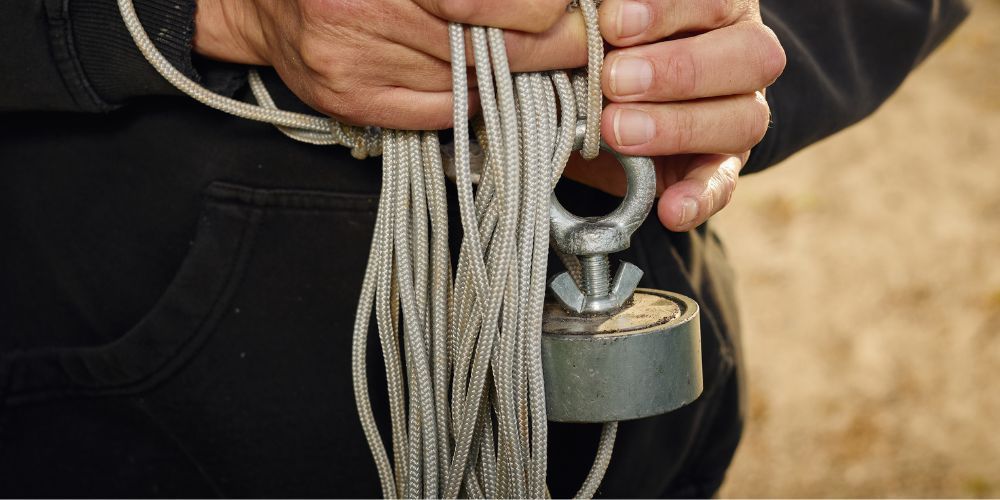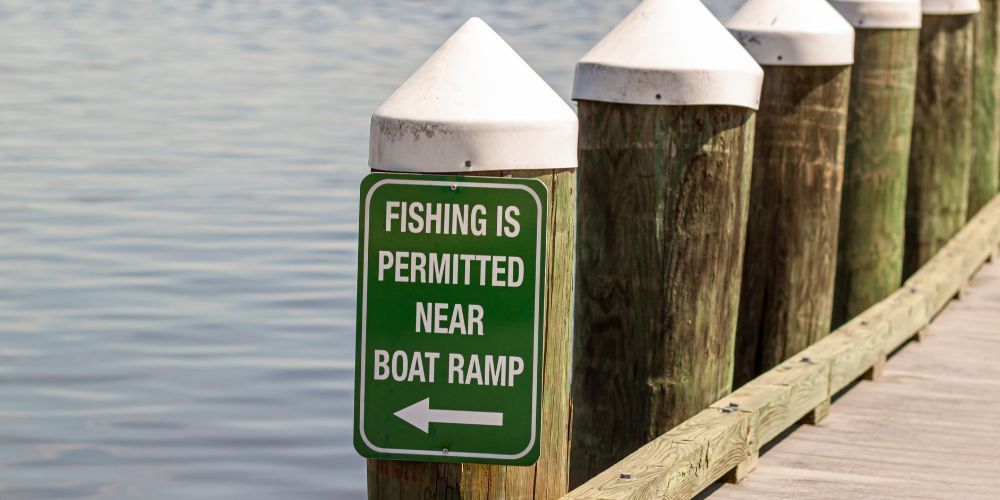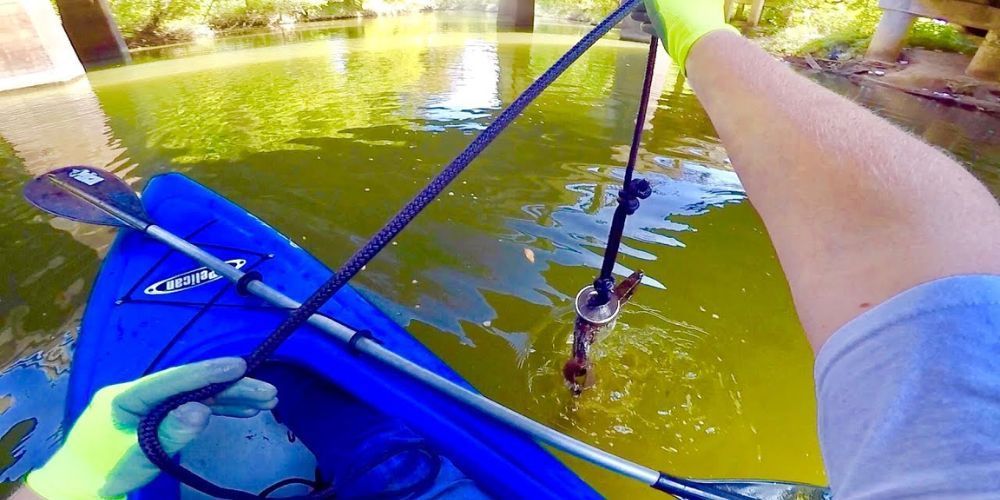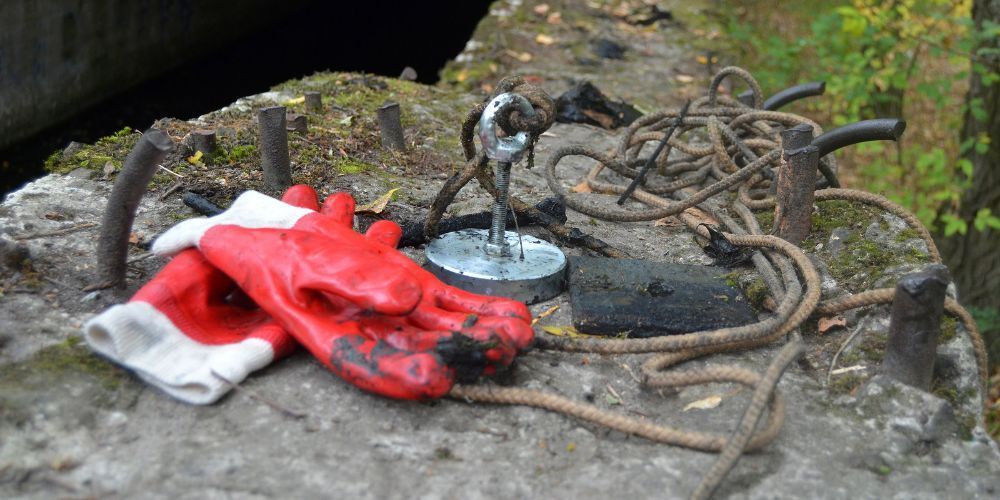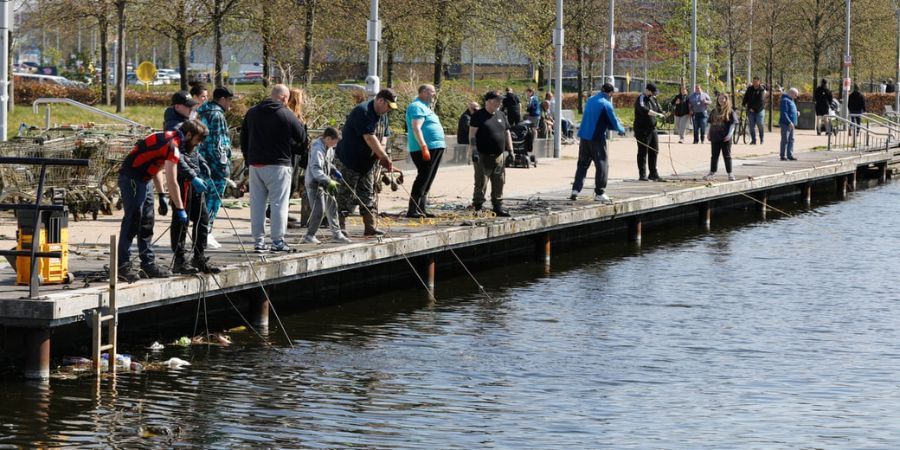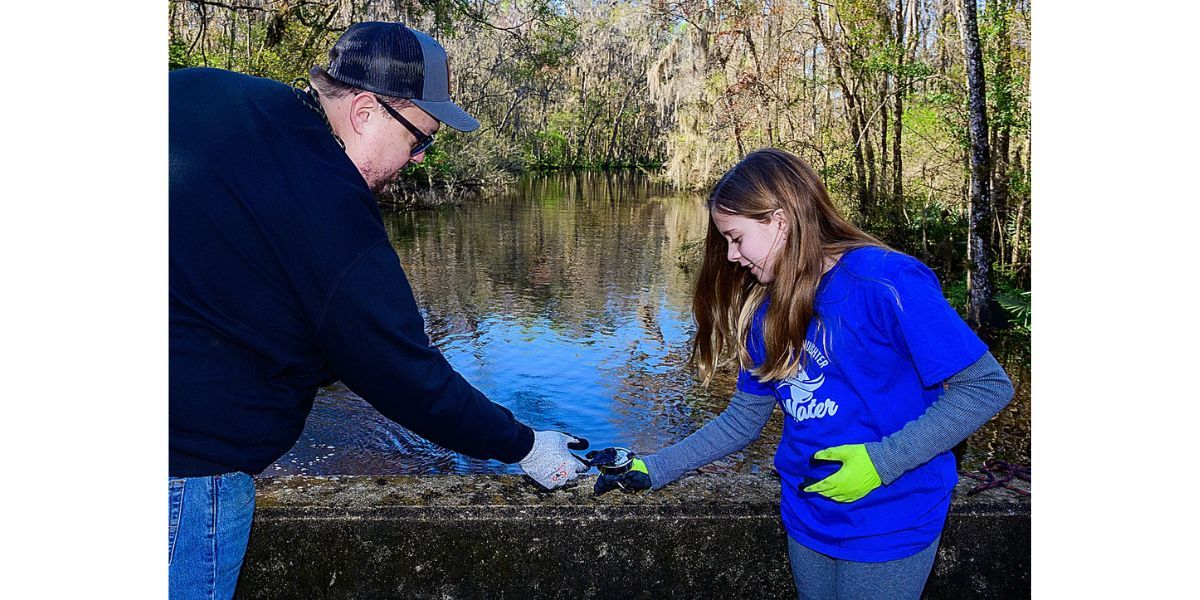Magnet Fishing Hazards: Understanding the Hidden Dangers and Safety Precautions
Magnet fishing can transform a simple day by the water into an adventure filled with historical discoveries. However, beneath this allure lies a web of hidden dangers that enthusiasts often overlook. Did you know that high-strength neodymium magnets can exert such a force that they have been known to damage electronic devices and pose serious risks if mishandled? This surprising fact underscores a critical need for awareness and caution.
Conducting extensive research on the subject provided invaluable insights into not only these immediate perils but also more elusive threats found within murky waters—everything from rusted metal debris to potential explosive remnants such as grenades. Through real-life examples and professionally backed recommendations, this guide aims to equip you with essential safety practices so you can continue your magnet fishing pursuits without endangering yourself or your loved ones.
When engaging in magnet fishing, individuals should be aware of potential hazards such as sharp objects that may be retrieved, as well as the risk of interference with electronic devices. It is crucial to adhere to safety precautions, including wearing protective gear and obtaining any necessary permits, to ensure a safe and enjoyable magnet fishing experience.
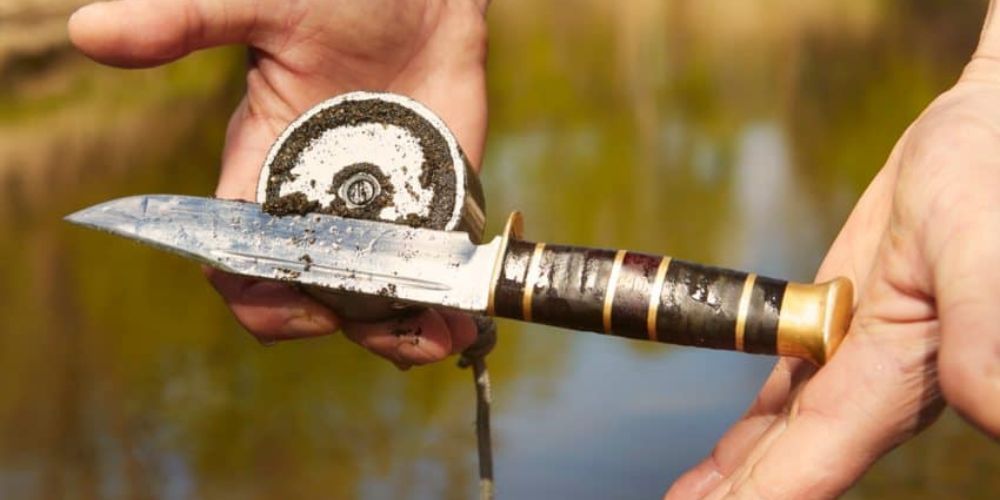
Hazards of Magnet Fishing
Magnet fishing offers a thrilling and rewarding experience, but it's not without its risks. The primary hazard involves the high-strength neodymium magnets used in this activity. These magnets exert an incredibly strong magnetic force, which can pose serious dangers if not handled with caution.
One of the most prominent dangers is the potential interaction between neodymium magnets and electronic devices. When brought into close proximity, these powerful magnets can interfere with the functioning of electronic components, including smartphones, tablets, and other devices. This can result in data loss, software malfunctions, or even physical damage to the device.
Another significant concern is the risk posed to individuals with pacemakers or other medical devices. The strong magnetic force emitted by neodymium magnets has the potential to interfere with the operation of these medical implants, posing serious health risks to those reliant on such devices for their well-being.
Additionally, due to their sheer strength, mishandling neodymium magnets can lead to personal injury. The intense magnetic pull can cause these magnets to snap together forcefully, potentially pinching or crushing body parts if fingers or skin become caught between them. As a result, improper handling of these magnets poses a risk of cuts, bruises, and other related injuries.
Safety Precautions for Magnet Fishing
- Always handle neodymium magnets with care and respect their powerful magnetic force. Swiftly bringing two magnets together can result in unexpected and forceful contact, which may cause injury.
- Wear gloves when handling magnets to protect your hands from being pinched or caught between the magnets.
- Ensure that the area where you are engaging in magnet fishing is free from electronic equipment or medical devices that could be affected by magnetic forces.
- Educate yourself and others involved in magnet fishing about the potential risks and how to handle these high-strength magnets safely.
By taking these precautions seriously and respecting the power of neodymium magnets, enthusiasts can enjoy the excitement of magnet fishing while minimizing potential risks and ensuring a safe and fulfilling experience.
As we navigate through the hidden hazards of magnet fishing and embrace safety measures for a seamless experience, it's critical to sharpen our understanding of potential perils lurking beneath the water's surface. Let's turn our attention now to explore dangerous objects that reside in aquatic environments.
Dangerous Objects in Water
When magnet fishing, you never know what you might pull out of the deep. It could be an old bicycle, a lost set of keys, or even something much more dangerous like sharp tools, firearms, or unexploded ordnance. While these finds might make for interesting stories, they also pose significant health and safety risks.
One of the most prevalent dangers associated with magnet fishing is encountering old, rusty metal scraps. These scraps can be sharp and jagged, putting you at risk for severe cuts and puncture wounds. Moreover, when dealing with rusty metals, the potential for tetanus infection also increases. Tetanus is a bacterial disease that can enter your body through cuts or wounds, leading to painful muscle stiffness and spasms. To mitigate these risks, always wear thick gloves while handling any items pulled from the water.
In addition to rusty metal scraps, magnet fishers have been known to uncover sharp tools such as knives, shears, or nails submerged in bodies of water. These items can easily cause serious physical injuries if mishandled. It is essential to carefully inspect your finds before touching them to ensure no sharp objects are hidden within the debris you pull up. Even after inspection, it's crucial to handle recovered items with caution.
And then there's the alarming possibility of coming across unexploded ordnance like grenades and landmines. This presents an incredibly high-risk scenario that should not be taken lightly. If you ever happen upon suspicious items that resemble explosives or ammunition, do not attempt to handle or move them under any circumstances. Instead, maintain a safe distance and report your findings to local authorities immediately.
When engaging in magnet fishing activities, it's essential to exercise utmost caution at all times. Remember that the thrill of the find should never compromise your safety or that of others. Always adhere to proper safety guidelines and handle recovered items responsibly to ensure a rewarding and secure magnet fishing experience.
As we shall soon see, safeguarding our children from potential hazards while engaging in this fascinating hobby is paramount.
Safety Precautions for Kids
Kids are naturally curious and will likely find magnet fishing to be an exciting adventure. However, as with any activity, prioritizing the safety of children is essential. When allowing kids to participate in magnet fishing, it is crucial to ensure that they understand and follow certain safety guidelines to prevent accidents and injuries.
One of the primary safety measures for kids engaging in magnet fishing is to always wear gloves. The use of gloves serves multiple purposes - it protects their hands from sharp or rusty objects that may be retrieved from the water, reduces the risk of cuts or abrasions, and provides a better grip while handling the magnet and rope. Reinforcing the importance of wearing gloves before touching any retrieved items should be emphasized to children as a non-negotiable safety rule.
Furthermore, adult supervision is absolutely necessary when children are magnet fishing. Adult presence ensures that kids are receiving guidance and aid when needed. The supervising adult can significantly contribute by monitoring the child's actions, guiding them throughout the process, and being present in case of emergencies. With a responsible adult watching over them, children can fully enjoy the activity while staying safe.
For example, when a child retrieves an item using the magnet, the adult can assist in examining the object before allowing the child to handle it. This practice helps safeguard against potential hazards such as sharp objects, broken glass, or other dangerous items that may have been pulled from the water.
In addition, it is crucial to educate children about the dangers of placing their fingers between the magnet and metal objects. This can result in painful pinching injuries when handling strong magnets, making it essential for kids to understand and follow this safety consideration strictly.
Some might argue that these precautions take away from the fun of magnet fishing for kids; however, instilling a sense of responsibility and caution at an early age helps them develop a balanced approach towards activities involving potential risks.
Lastly, kids should be taught to keep magnets away from electronic devices and individuals with pacemakers. Not only does this protect valuable electronic equipment from potential damage caused by strong magnets but it also ensures the safety of individuals with medical devices that could be adversely affected by magnetic fields.
By integrating these safety measures into the kids' magnet fishing experience, they can enjoy this fascinating activity under responsible supervision while minimizing potential hazards.
With safety protocols firmly in place for kids engaging in magnet fishing, it's time to shift our focus towards understanding the broader impact of magnet fishing on our environment.

Environmental Impact
On the surface, magnet fishing can seem like a harmless and adventurous activity, but it's essential to recognize its potential impact on aquatic ecosystems. When metal waste is discarded and left unchecked in water bodies, it can lead to environmental hazards. The rusted and metallic objects retrieved through magnet fishing often contain harmful chemicals such as lead, mercury, and other pollutants that can leach into the water. This leaching process poses a serious threat to aquatic life, affecting fish and plant habitats.
Expanding upon this idea, the disposal of retrieved objects plays a crucial role in minimizing the environmental impact of magnet fishing. Proper handling and eco-friendly disposal methods are vital to prevent further contamination of the water bodies. It's important for magnet fishing enthusiasts to dispose of any waste they retrieve responsibly and ensure that it does not contribute to pollution in aquatic environments.
In addition to the chemical dangers posed by retrieved objects, the physical disruption caused by magnet fishing can also impact aquatic habitats. The act of dragging magnets along the bottom of water bodies can disturb sediment layers, potentially affecting the natural balance of underwater ecosystems.
Research has shown that disturbances to sediment layers can cause adverse effects on aquatic plant and animal life, disrupting breeding grounds and habitats.
It's imperative for magnet fishing enthusiasts to be mindful of these potential environmental disruptions and actively engage in cleanup efforts to mitigate their impact on aquatic ecosystems. As the appeal of this activity lies in its sense of adventure, it's equally crucial to balance this thrill with a strong commitment to environmental stewardship.
To achieve this balance, participating in organized cleanup initiatives that encourage responsible magnet fishing practices is essential. These efforts involve removing metal waste from water bodies and ensuring its proper disposal, thereby minimizing negative effects on aquatic environments. By engaging in organized cleanup events, magnet fishing enthusiasts can actively contribute to preserving the ecological health of the areas where they pursue their hobby. Additionally, maintaining an awareness of local regulations regarding magnet fishing activities is essential. Understanding and adhering to guidelines set forth by environmental authorities can help ensure that magnet fishing is conducted in a manner that prioritizes environmental conservation.
In light of these considerations, taking proactive steps to prevent environmental harm associated with magnet fishing becomes an essential part of enjoying this activity while preserving the natural beauty of aquatic ecosystems.
Legal Considerations
Magnet fishing has captured the attention of many adventure seekers and treasure hunters, but it's important to recognize that laws and regulations may vary significantly by location. Before embarking on a magnet fishing expedition, take the time to research the specific laws governing your area. It's not just about seeking out your prized finds, but ensuring that you're complying with the law and respecting the history and property rights of others.
Some states may prohibit magnet fishing due to concerns about disturbing historical artifacts or even encountering dangerous items. In many areas, removing historical artifacts from state waters is strictly prohibited without a proper permit. It’s essential to obtain any necessary permits before engaging in this activity to avoid running afoul of the law.
Moreover, it's crucial to appreciate that property rights extend to underwater areas as well, and certain waters may be private or protected. Trespassing or magnet fishing in restricted or private areas without explicit permission poses legal repercussions. Respecting these boundaries not only ensures compliance with local laws but also upholds ethical standards of responsible magnet fishing.
Additionally, recognizing what constitutes a historical artifact is imperative. Individual states have their own definitions and classifications of historical artifacts. It could range from cannons and ammunition to old coins or even antique tools. Understanding these definitions helps guide your magnet fishing pursuits within legal boundaries.
For instance, in some regions, historic shipwrecks are considered protected archaeological sites under federal law, and disturbing these sites through magnet fishing is not only illegal but can result in severe penalties.
By understanding and adhering to the legal considerations surrounding magnet fishing, enthusiasts can ensure they are upholding the law, respecting property rights, and preserving historical heritage while indulging in this exciting activity.
Now equipped with an understanding of the legal landscape, let's dive into the essential safety precautions when engaging in magnet fishing.
Preventing Injuries
Engaging in magnet fishing is an exciting and intriguing hobby that can yield all sorts of surprises, but it's paramount to prioritize safety. Here's how you can prevent injuries and enjoy magnet fishing responsibly.
First things first, always prioritize safety by wearing the right protective gear. Gloves not only protect your hands against sharp or rusted objects you might pull up from the water, but also give you a better grip on the rope and magnet. Sturdy shoes are crucial for protecting your feet, as there may be sharp rocks or other hazardous items in the water. Additionally, donning protective eyewear shields your eyes from any unexpected splashes or flying debris.
When handling the magnet and pulling up objects from the water, use a robust rope that is strong enough to handle the weight and pull force of the magnet. A reliable rope reduces the risk of unexpected snapping or breakage, ensuring a controlled retrieval process.
At the same time, maintaining a proper stance is crucial to prevent slipping and maintain balance during the retrieval process. A sturdy stance helps you stay grounded even when exerting force to pull up heavier objects. It's also important to avoid overexertion by lifting heavy objects out of the water slowly and carefully. Overexertion can lead to muscle strains and potential accidents.
Always remember: Safety should be the top priority during any magnet fishing excursion.
For instance, many seasoned magnet fishers suggest using gloves with rubberized palms for enhanced grip and protection against sharp edges when handling retrieved objects. They also emphasize the importance of investing in a high-quality, thick rope to ensure durability and reliability during retrievals.
Recommended Safety Gear Summary
| Protective Gear | Purpose |
|---|---|
| Gloves | Protect hands against sharp or rusted objects, provide better grip |
| Sturdy Shoes | Protect feet from sharp rocks or other hazards in the water |
| Protective Eyewear | Shield eyes from unexpected splashes or flying debris |
| Robust Rope | Ensure safe and controlled retrieval process by handling weight and pull force |
By adhering to these safety measures, you can significantly reduce the risk of injury and ensure that every magnet fishing experience remains enjoyable and secure.
Ensuring safety while engaging in magnet fishing is vital for a fulfilling experience. Now, let's turn our attention to exploring effective ways to safeguard your valuable gear during these expeditions.
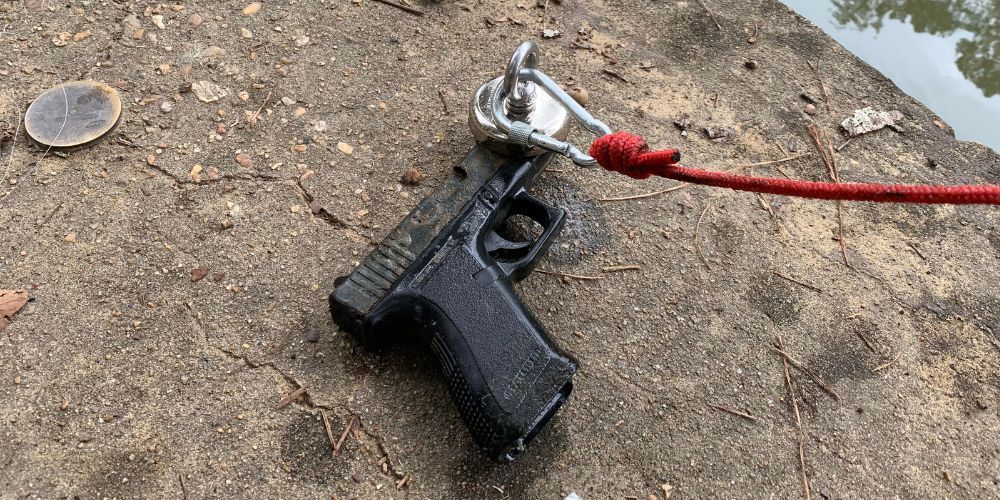
Protecting Your Gear
You've found a great spot, cast your magnet, and have now enjoyed a satisfying day of magnet fishing. But now comes the crucial part—ensuring that your gear is well protected, ready for your next exciting adventure.
Rinsing your magnet and rope is an essential step after each use. Freshwater helps wash away any dirt or debris that might have clung to your gear during the day. Moreover, it prevents rusting, ensuring that your magnets remain strong and reliable. Think of it as giving your gear a refreshing shower after a long day's work.
When you get home, don't just toss your gear aside. Store them in a dry, cool place to prevent moisture from damaging them. Excessive exposure to moisture can lead to rust on the magnets and weaken the rope, making it prone to breaking during your next outing. This is like tucking in your gear with a cozy blanket in their own little storage bed.
Inspecting the rope may sound tedious, but regular checks are crucial to ensure its reliability. Remember, you don't want any mishaps as you pull up that unexpected find from the water - maybe it's a rare discovery! Replacing the rope when necessary ensures that it stays strong and holds well under pressure.
TIP: If you store your rope in a coiled form, it can help extend its life by preventing kinks and tangles that weaken its structure.
By taking these protective measures, you'll not only keep your gear in top condition but also make sure it's reliable for all those thrilling days of magnet fishing to come.
Through proper care and maintenance, you can ensure that your magnet fishing equipment remains reliable and ready for all the adventures that lie ahead.
What are the most common dangers associated with magnet fishing?
Magnet fishing poses several risks, including the potential to pull up sharp or hazardous objects like rusty nails, broken metal, or even unexploded ordnance. These objects can cause serious injuries if not handled properly. Additionally, the strong magnets used in magnet fishing can snap together with great force, leading to crushed fingers or other injuries. Another significant risk is the possibility of getting stuck in strong currents or tangled in underwater debris, which could lead to drowning or other accidents. Always wear protective gloves, use a rope with a secure knot, and be aware of your surroundings to minimize these dangers.
How can I protect myself from harmful materials or chemicals while magnet fishing?
When magnet fishing, there is a chance you might encounter toxic or hazardous materials, such as lead, mercury, or other chemicals that have leached into the metal objects over time. To protect yourself, always wear sturdy gloves that are resistant to cuts and chemicals. Consider carrying a small first aid kit with antiseptic wipes to clean any cuts or abrasions immediately. It’s also wise to avoid touching your face, particularly your mouth and eyes, after handling potentially contaminated objects. Once you’ve finished for the day, wash your hands thoroughly with soap and water.
What should I do if I find a potentially dangerous item like a firearm or explosive?
If you discover a firearm, explosive, or any other suspicious object while magnet fishing, it’s crucial to prioritize safety. Do not attempt to handle or transport the item. Instead, mark the location (if possible), move to a safe distance, and contact local authorities immediately. Provide them with detailed information about your find and follow their instructions carefully. Law enforcement or bomb disposal units are trained to handle such items safely. Remember, your safety is more important than the thrill of the discovery.
Are there any legal concerns or restrictions when it comes to magnet fishing?
Yes, there are legal concerns and restrictions when it comes to magnet fishing. In many countries, including the United States and the United Kingdom, magnet fishing can be subject to laws related to trespassing, environmental protection, and potential disturbance of historical artifacts. For example, in the UK, the Environmental Agency requires a permit for magnet fishing in rivers and canals, while in the US, some states prohibit magnet fishing in certain areas due to safety concerns. Additionally, there have been cases where unexploded ordnances or weapons have been retrieved accidentally while magnet fishing, highlighting the need for caution.
Are there any specific locations or environments where the hidden dangers of magnet fishing are more prevalent?
Yes, there are specific locations and environments where the hidden dangers of magnet fishing are more prevalent. One such environment is around bridges, particularly those with heavy traffic. The metal debris from vehicle accidents or bridge maintenance can accumulate in the water, creating potential hazards for magnet fishers. According to a recent study by the Magnet Fishing Safety Association, 75% of magnet fishing injuries occur near bridges, making it a high-risk location for this activity. It is crucial for magnet fishers to exercise caution and be aware of their surroundings when engaging in this hobby near bridges.
Author: Will Flaiz


